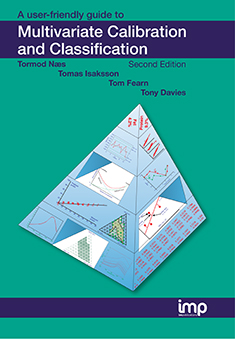A.N. Davies
Professor, SERC, University of Glamorgan, UK,
Director, ALIS Ltd, and ALIS GmbH—Analytical Laboratory Informatics Solutions
Christmas is a time of giving and it is with great pleasure that we are able to report the news that Dr Michael Heise, a friend of many years both personally and of this column, has recently been awarded the title of Honorary Professor at the University of Applied Sciences of South-Westphalia in Iserlohn, Germany.1 Mike has been regarded for a long time as an “Internationaler Experte für Infrarot-Spektroskopie”, as the Iserlohn University of Applied Sciences put it on their press release!
However, Mike’s broad contributions, not only to the science of spectroscopy, but also to the whole field of sampling, measuring and evaluating data are unique. Both as a researcher and teacher Mike as few equivalents. Indeed, it is his students’ work over the years, which has enriched the equipment and supporting software that we enjoy today.
Michael Heise received his Honorary Professorship in the Faculty of Informatics and Natural Sciences on 13 November 2009. The University were especially keen that they should honour Michael Heise’s long and successful work in both the areas of research and teaching.
Historical
Herbert Michael Heise studied Chemistry at the
Michael Heise is probably far more famous for his enormous efforts outside the Institute providing vocal and hard working contributions to various national and international organisations and expert committees, both as a member and expert referee.
The award
During his Laudatio, Professor Dr Dieter Ihrig emphasised his pleasure at being able to honour not only a valued colleague but also someone who had become a good friend over the years. He praised his ability to help-out at critical times and his reliability, stating that when Michael Heise said he would take on a particular activity you could relax in the certain knowledge that the work would be carried out exactly as promised.
He especially singled out his particular engagement and contribution to the positive development of the courses in bio- and nano-technologies. His lecture courses in the areas of pollution analysis, as well as the new course in Spectroscopy and Biomedical Applications (which was initiated at his suggestion!) are popular amongst the students, and his supervision of the final year projects valued.
The research carried out between the University and Michael Heise’s research group at ISAS has also been productive. The common research projects into early-stage diabetes diagnostics were particularly honoured by the German government with the “Innovationspreis Medizintechnik”. For the last five years Dr Heise and Professor Ihrig have led the research area in Life Sciences Analytics at the University.
During the party thrown in his honour, the President of the University, Professor Dr Claus Schuster, formally presented Dr Heise with his new Honorary Professor title and certificate, and offered him the congratulations of the University. A number of Dr Heise’s previous line managers were present to honour him during the ceremony, including Professor Dr Kay Niemax, ISAS Director, Professor Dr Antony Davies, University of Glamorgan, Wales, and Dr Ernst-Heiner Korte formerly of ISAS in Dortmund and Berlin.

Output
Michael Heise has always been an excellent and prolific contributor to the scientific literature. He has produced over 175 publications including book articles, 300 conference lectures and posters including very many plenary lectures.
It is important not to forget his service as organiser of eight international scientific conferences. He is a member of four editorial boards and six scientific commissions. In the last 15 years he has won 10 externally funded projects, with a total financial volume of over 1.4 M€.
International reputation
Professor Dr Dieter Ihrig added an interesting citation published by one of the top internationally recognised figures in analytical spectroscopy, Professor Peter R. Griffiths of the Department of Chemistry, University of Idaho, USA. Peter was on a grand European tour and stopped off in Dortmund. On hearing of Michael Heise’s plans for retirement, he regretted the loss of expertise at ISAS and wrote, “I met with several scientists, including Dr Michael Heise, who has been one of the most productive people in molecular spectroscopy over the last 20 years”.2 This coming from another of the most productive people in molecular spectroscopy is praise indeed.

On a personal note
I have personally been able to profit greatly from Michael Heise’s unique dedication and expertise during my time at ISAS as well as following my departure to pastures new. At times of enormous pressure, whether due to enforced renovation work throughout his laboratory areas or due to governmental scrutineers hunting for any weaknesses in publication statistics or lack of third-party funding I was always able to rely completely on Mike’s output. Where others were deflected by the environment in which we had to work, Mike was able to stay completely focussed and continued to deliver substantial amounts of quality output, enabling not our research group but the institute as a whole to weather what were particularly difficult storms. I am very pleased that through the University of Applied Sciences of South-Westphalia in
Thanks again Mike!
References
- University of Applied Sciences of South-Westphalia, Press Release 13 November 2009, www.fh-swf.de
- The Newsletter of the Society for Applied Spectroscopy, 11/12 2007, p. 12.


